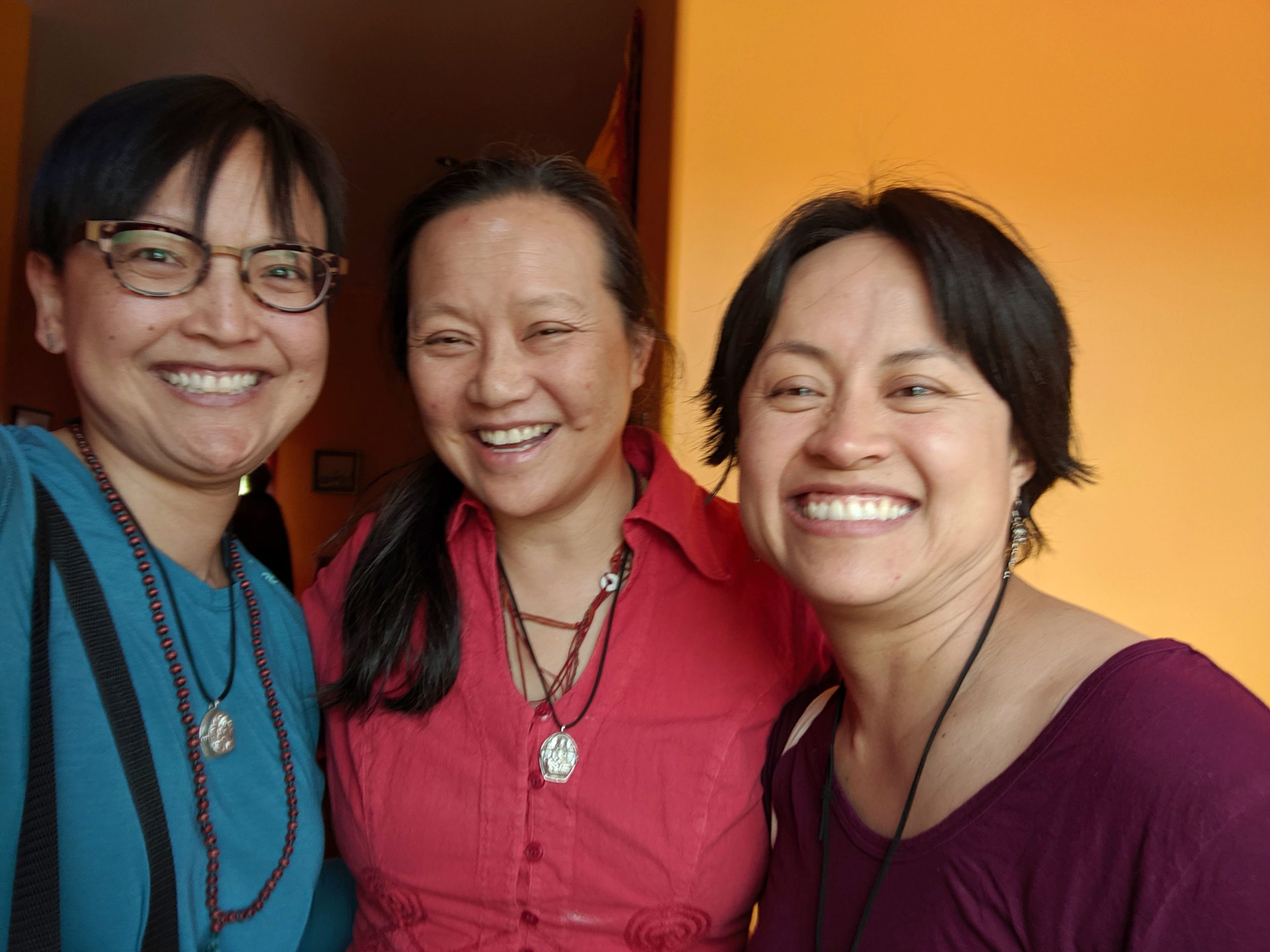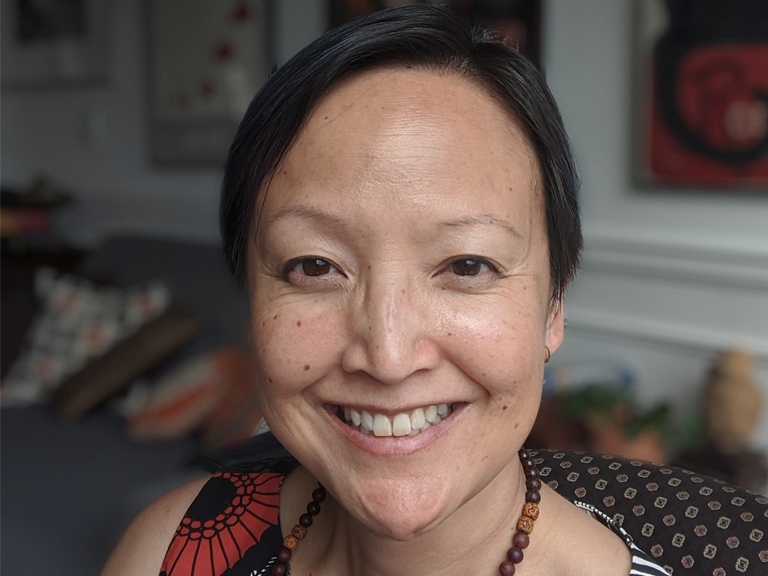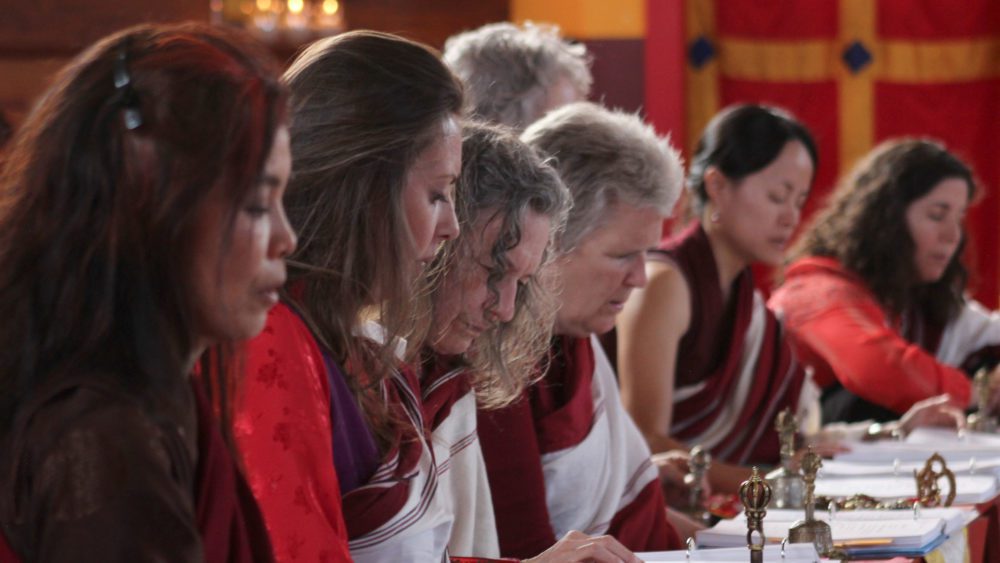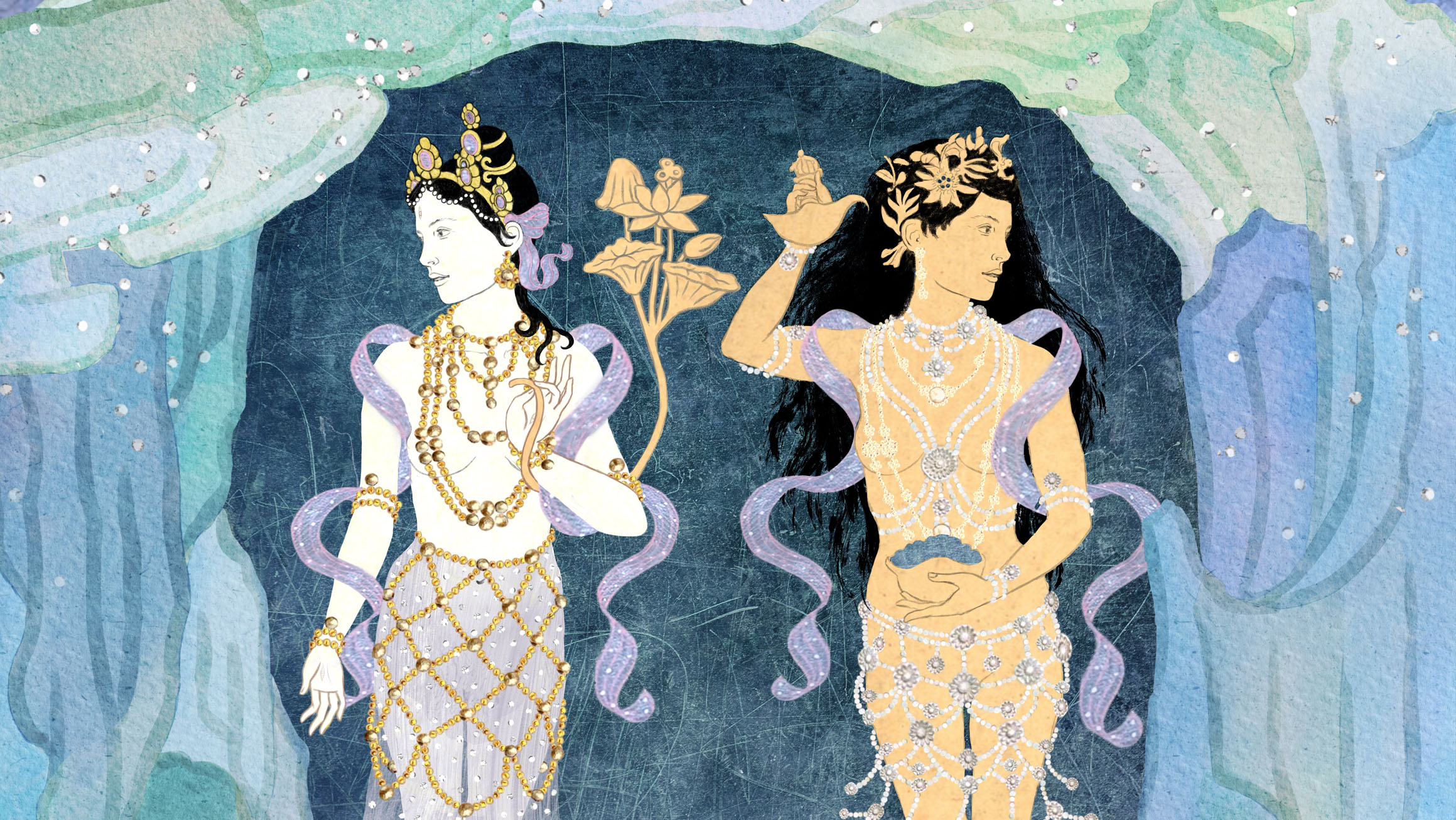This blog post is written by Celeste Young, Tara Mandala Board Member, and Equity, Diversity, and Inclusion Council Member. This written piece reflects on the importance of seeing people for who they truly are, and not just belonging to a race; and in remembering someone’s name we undo the blind spots of racism.
This post is offered in honor of AAPI Heritage month in the United States, celebrating the history of Asian American and Pacific Islanders.
I didn’t recognize what was happening, at first.
“Hi Christine! How are you?!” “Mary” greeted me enthusiastically. I responded in kind, not wanting to correct her (people call me Christine all the time, or Chelsea, or Celine) and assuming her usual generous energy accounted for the very warm greeting.
But soon enough, as she continued to address me as Christine (even after retreatant introductions and at least one person corrected her), it finally clicked: there was another Asian-appearing woman attending the retreat, and she was named Christine. It wasn’t that “Mary” didn’t remember my name correctly; she was confusing me for someone else of my same general ethnicity. This was further compounded over the course of the retreat as I was called the name of yet a third Asian-appearing retreatant, Akiko.
We laughed it off at the time, even taking a selfie of the three of us because by the end of the retreat we’d all be called by each other’s names. But I decided to write about this today, this month, now, because we’re evolving as people – as a society – to be more aware of these kinds of microaggressions and casual racism and what we can do to recognize them and to do better.

Photo (left to right): Celeste, Christine, and Akiko
The fact is that humans are fundamentally better at distinguishing the faces of people of our own race, or the dominant cultural race (in the case of the US and Europe: Caucasian). This is a well-documented finding called the Cross Race Effect, first identified in 1914 by Gustave Feingold. So the perception that people of an ethnic group are hard to distinguish can be honestly based in a lack of exposure to that group. But the statement/excuse, “Oh x ethnicity folks all look alike,” is based in racism. Do you see the difference?
The psychological damage accumulates over time. Imagine if no one ever pronounced your name correctly, except your family. You would only feel truly seen in your home community. Imagine if you worked in an office where you and the other person of your race were constantly confused for each other. You would be concerned your achievements would never be recognized and your career would stall. When this unseeing happens multiple times in multiple situations, the cumulative effect is to feel invisible, unappreciated, undifferentiated. Your participation declines.
Even removing the component of race or minority, getting a person’s name right is an important practice. I participated in a leadership workshop where, after 12 hours of being in a training group of about 25 people, they made everyone stand in a circle, go to each person, and either say their name and something positive about them or, if you didn’t remember their name, say directly to that person, “I don’t care about you enough to remember your name.” Because that is effectively what you are saying when you don’t remember someone’s name. Everyone I know who went through that exercise makes a deep effort to remember the names of people they meet.
I get it: remembering names is hard. But confusing the names of minorities is, in fact, a microaggression (defined as: a subtle, perhaps unintentional discrimination against someone of a marginalized group). There are plenty of tips, tricks, and videos online about how to remember people’s names. They mostly emphasize paying attention and setting a clear intention to remember this person’s name.
If you do call someone by the wrong name, especially if they are someone of another race, please just apologize. Apologize honestly, and from the heart, without excuses. Have compassion for yourself for making an honest mistake, and while you’re doing it, look this person in the eye and commit in your heart-mind to truly see them, and to remember their name. It will make a difference.
In this month of AAPI Heritage in the United States, we invite you to learn more about the history of Asian American and Pacific Islanders, and support our fellow citizens against the ongoing wave of hate crimes.
Please reach out to our Equity, Diversity, and Inclusion committee if you need support or have ideas on how to better support our AAPI community. Please contact us on this page.
About Celeste Young
Celeste Young has been bringing people together in collective effort for over 25 years. Specializing in distributed projects, she uses her sharp mind and compassionate heart to unite global teams in building plans and tools that help others achieve their dreams. Celeste earned a B.A. in Anthropology from Harvard University. Her career in software development has spanned encyclopedias, staffing, Salesforce, startups, global marketing and technology, and customer experience strategy. Celeste first came to Tara Mandala in 2017 and immediately joined the Magyu program. She also serves on the Mandala Committee for the Northern Sierra Sangha, which offers many practices and dharma book clubs online. Based in Seattle, Celeste leads teams around the world to bring ideas to life and clarity to chaos.

Photos: Header (Kirian Regan), Celeste, Christine, and Akiko (Celeste Young)




